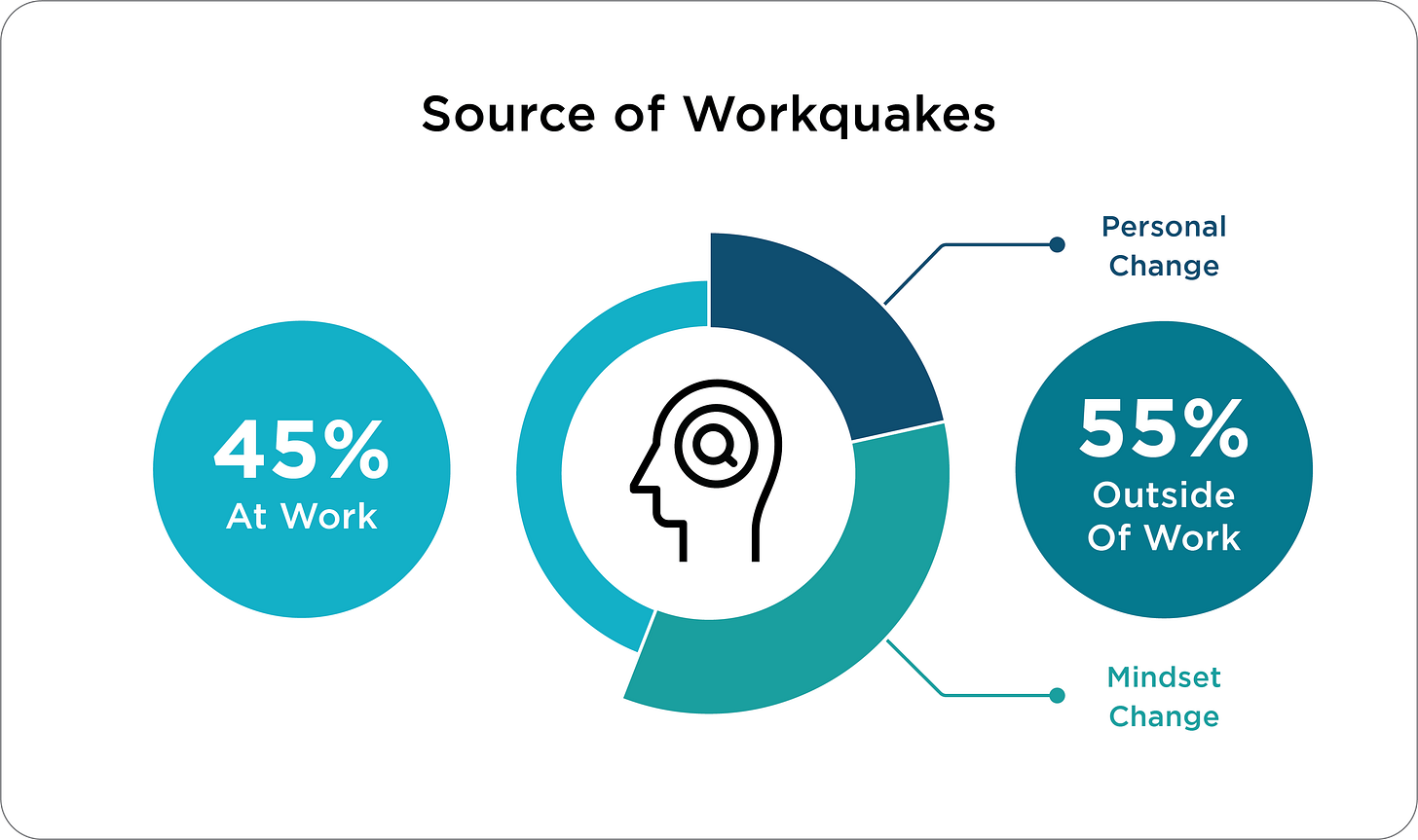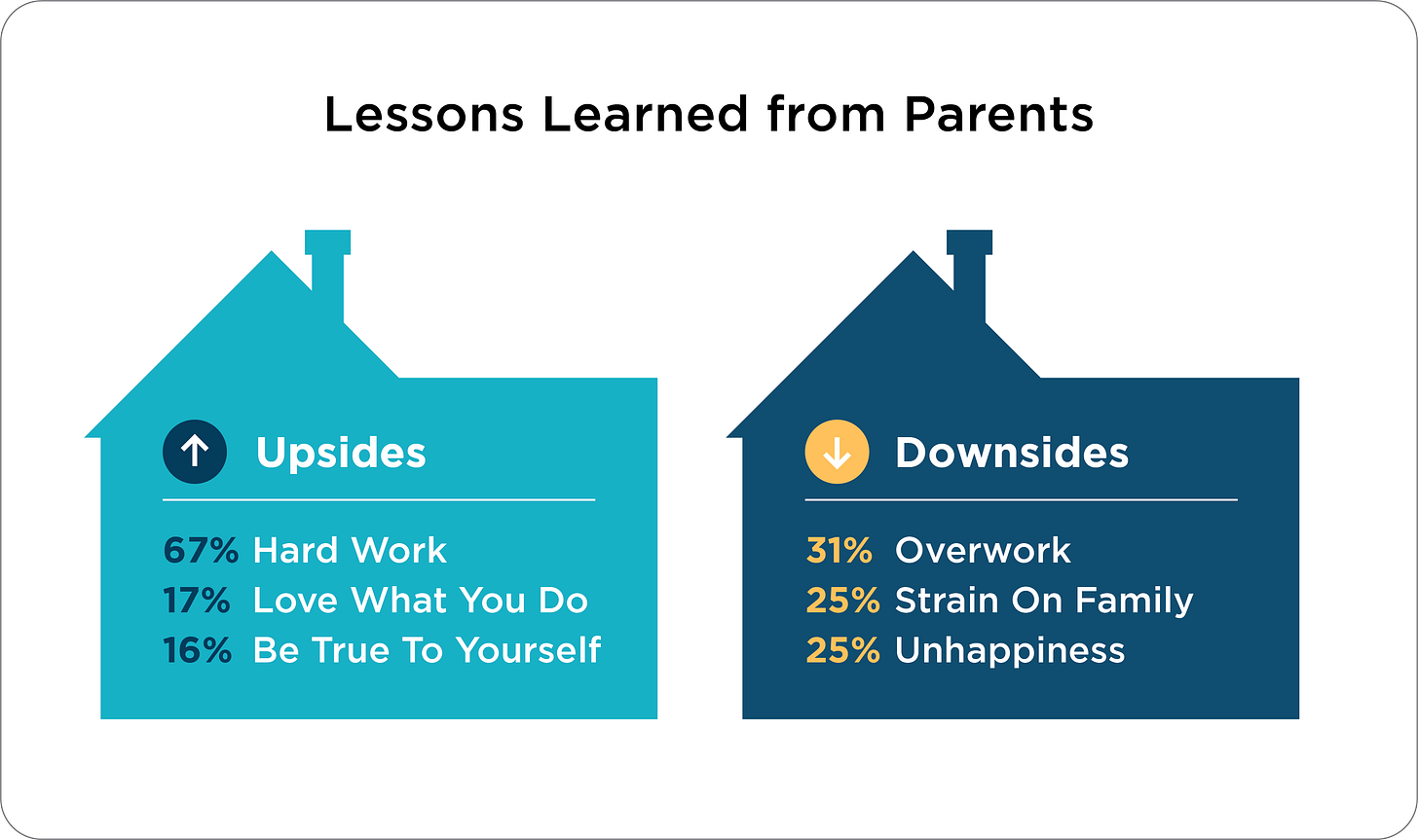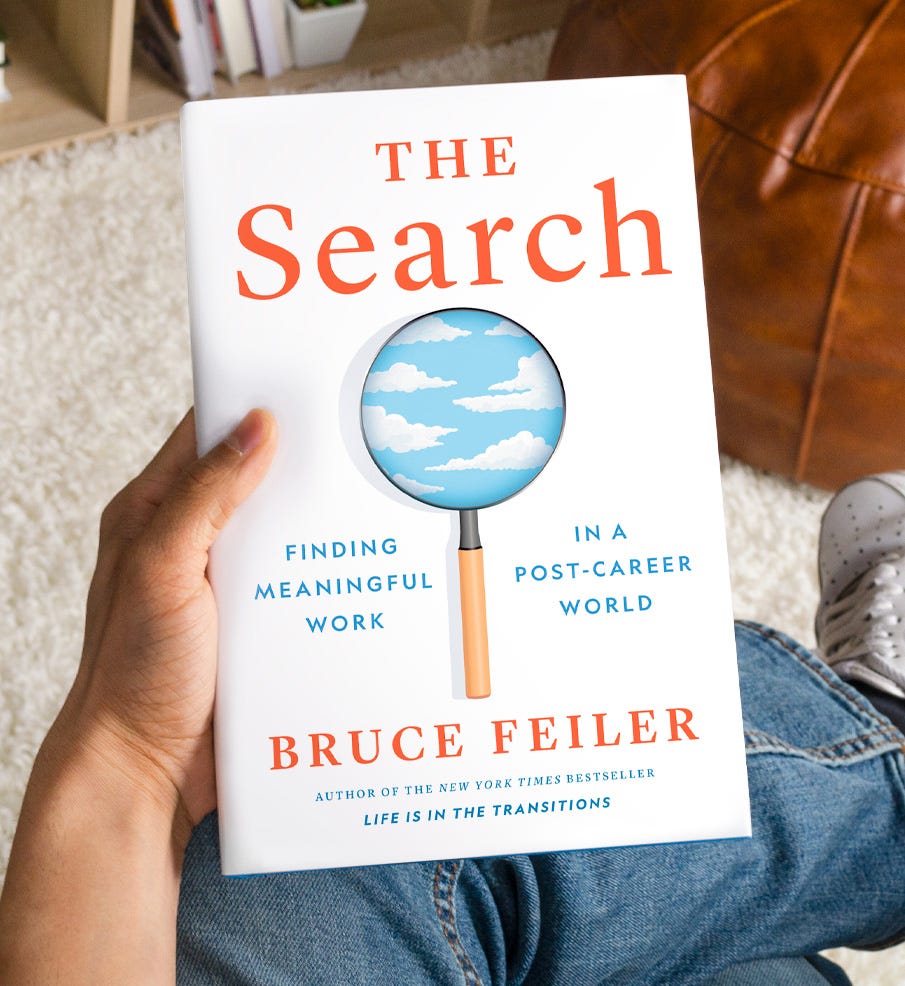How to Be Happy at Work
New Gallup Report Says 2/3rds of Americans Are Unhappy with What They Do—Here's How You Can Fix That
Thanks for reading The Nonlinear Life, a reader-supported newsletter about navigating life's ups and downs. If you're new around here, learn about me, or check out our introductory post. And if you enjoyed this article, please subscribe or share with a friend.
___
Gallup released a shocking new report this week on the state of the global workforce. Its findings:
Two-thirds of Americans are unhappy with what they do.
Nearly 6 in 10 Americans are quiet quitting.
Employee unhappiness costs the worldwide economy $9 trillion a year—that’s 9% of global GDP.
Half of Americans say they are seeking a new job.
Drawn from 2 million survey respondents, each of these numbers is unprecedented in the more than 13 years Gallup has collected this data.
The report raises two urgent questions:
1) Why Are Workers So Unhappy?
I’ve spent the last six years crisscrossing the country collecting and analyzing life stories of hundreds of Americans of all backgrounds, all income levels, and all 50 states. In total, I’ve collected 1500 hours of interviews and more than 10,000 pages of transcripts.
My data show that the primary reason workers are unhappy is that they’re rejecting generations of norms that work is supposed to make you unhappy. By contrast, a new generation of workers—younger, more female, and more diverse—is rebuffing the myth of the linear, upward career, where you lock into a dream early, always keep climbing, never stop until you reach the “top.”
Instead, workers today go through what I call a workquake every 2.5 years—that’s 20 times in their lives. A workquake is a jolt or disruption in which you choose to—or are forced to—rethink or reimagine what you do. Many of these workquakes begin in the workplace: you have a conflict with your boss, your organization shuts down, or you get laid off. But a majority of workquakes—55%—begin outside the workplace. Something happens with your family, your health, or your priorities. Anything from a diagnosis to a natural disaster to a pandemic causes you to question what you do.
In the battle between life and work, life is playing a greater role.
This change hints at the biggest reason people are feeling restless: They want more out of work itself. Fewer people are searching merely for work these days; more people are searching for work with meaning. For many, this turn to meaning leads them to value such metrics as flexibility, balance, purpose, and wellbeing more than the traditional metric of money. The new Gallup survey reinforces this finding: Twice as many Americans prioritize company culture and wellbeing over salary and benefits. Other surveys have found that 6 in 10 millennials, who with Gen Z now make up more than half the workforce, say meaning is more important to them their boomer parents.
2) How Can You Become Happier at Work?
My data also provide a clear blueprint for how workers can take affirmative steps to make themselves happier. For starters, the people who are happiest and most fulfilled in what they do don’t just climb, they also dig. They perform what I call a “meaning audit,” doing personal archaeology to unearth the often unspoken expectations around work that they’ve been carrying around since childhood, the specific needs they have at this moment, and the precise priorities they want to emphasize going forward.
Here are 3 questions you can ask right now to identify your happiness agenda:
1. The upsides and downsides of work I learned from my parents were _______________.
Any good story has a backstory; our work stories are no different. We’re often haunted by our parents’ experiences around work without even bothering to identify those experiences.
For example, when I asked people the most prominent upside of work they learned from their parents, the #1 answer was the value of hard work. But when I asked people the #1 downside, the top answer was overwork, followed by strain on the family and unhappiness. By identifying the biggest fear of work you inherited from your upbringing you’ll likely identify the biggest source of unhappiness in your work life today.
2. I’m at a moment in my work life when _______________.
A big problem with the myth of the linear career is that it locked you into the expectation that every job would be bigger, better, and splashier than the previous one. Even worse, the linear career ideal stigmatized such perfectly natural choices as taking time to spend with family, doing a stint in public service, or starting your own organization that might succeed—or fail.
By doing a check-in of your priorities right now, you eliminate that problem. Maybe you’re at a moment when you want to emphasize making money to pay off student loans or save for sending children to college; or maybe you want flexibility so you can take your mom to her chemo appointments or your child to travel soccer games. Perhaps you’ve been doing the same thing for a long time and are ready for a change; or maybe you’ve just taken a new job and want to reimagine your current role by working remotely for several days a week.
Wherever you are in your life, you can take more agency to make your work life better.
3. The best advice I have for myself right now is _______________.
The final revelation of my conversations is that while all of us seek out advice when we’re going through a work transition, the best advice turns out to be “trust yourself.” Three-quarters of people told me that what they found most helpful was when people told them to listen to their gut. They didn’t want a kick in the rear; all they wanted was a pat on the back.
So whatever source of unhappiness you’re facing, you’re already writing the story that will make you happier. All you have to do is give yourself permission to write the next chapter.
☀
Thank you for reading The Nonlinear Life. This is a reader supported newsletter. You can help by ordering a copy my new book. Click on the photo below to learn more.
Meanwhile, please help us grow the community by subscribing, sharing, and commenting below. If you'd like to do a storytelling project with a loved one similar to the one I did with my father, click here to learn more.
You might enjoy reading these posts:
The New Rules of Success in a Post-Career World
Hear Me with Gwyneth Paltrow, George Stephanopoulos, and NPR. Highlights of Day 1 of My Book Tour!
Read the Opening Pages of THE SEARCH
Or, you can contact me directly.












